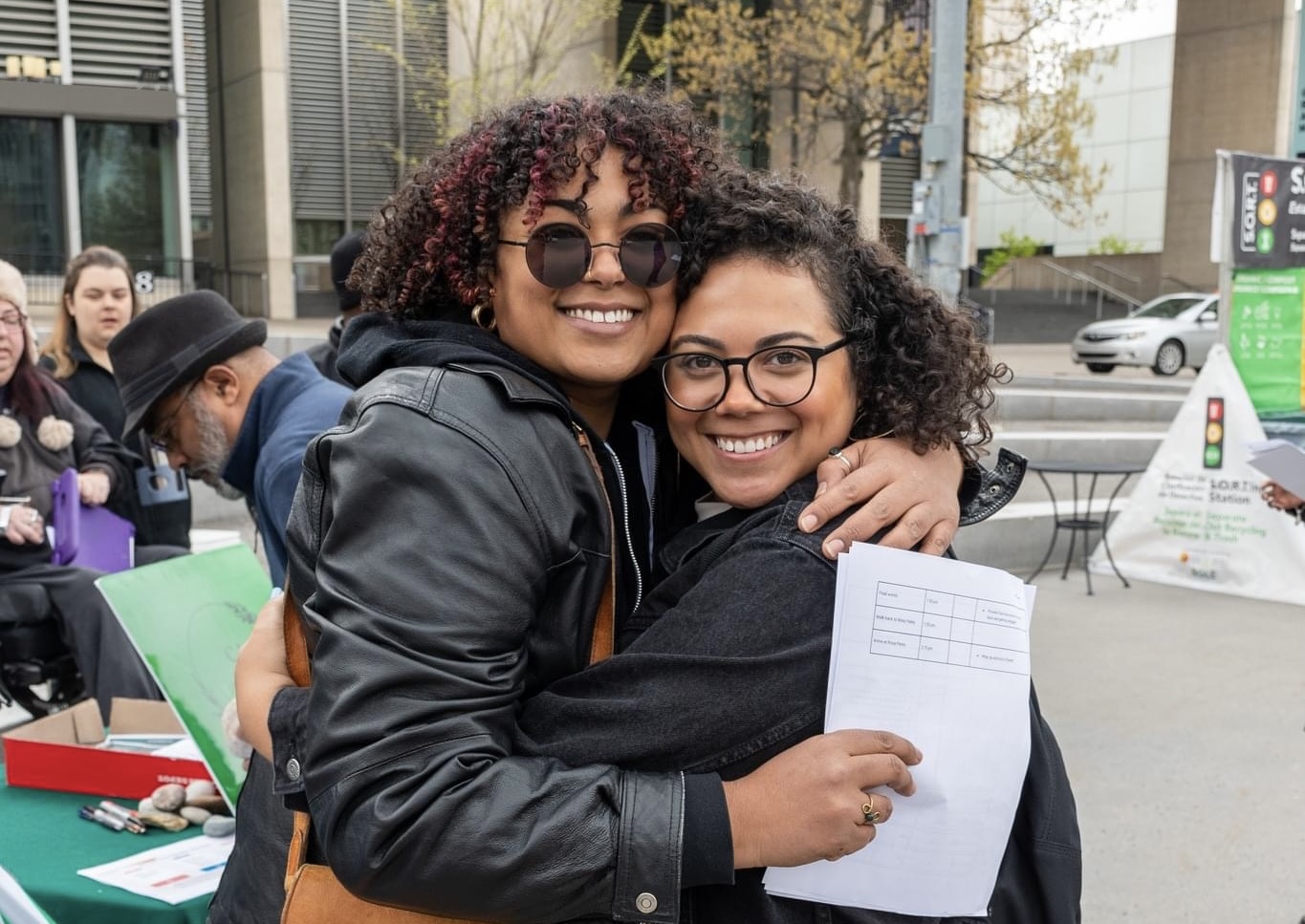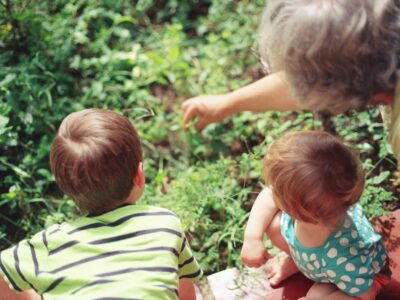In Grand Rapids, Michigan, a city of just under 200,000 people, organizations, churches, municipal leaders, businesses, and individuals are joining forces to take care of our common home—especially their immediate neighbors.
The challenges of global changes in the climate are just that—global—so how can communities like Grand Rapids, a city that isn’t that big and doesn’t seem that affected by extreme weather changes make a difference… and why should they?
Nate Rauh-Bieri serves as the Co-Chair of the Grand Rapids Climate Coalition, a fully volunteer-driven organization advocating for the environmental wellness of our planet.
“On one level, we are in an interconnected planetary system. We share the same ecosystem. What you do here affects people in the Philippines,” Rauh-Bieri said. “If you want to make meaningful change in the global climate system, anywhere you do that matters.”
But also, trying to tackle national and international goals on a national and international level is difficult, and slow. That systemic change takes a lot of time and cooperation from a lot of warring parties. “It can be so much easier to make change in a smaller community, because it doesn’t take as many people. You can develop relationships with your elected officials and policymakers, and anything that happens at federal, state, or international level still requires the projects to be done somewhere,” said Rauh-Bieri. “That somewhere is in a community somewhere… why not yours?”
How Grand Rapids Is Affected by Changes in the Climate
The environmental challenges might now be as noticeable or drastic as other areas of the world, where people’s very survival is impacted by changes in the climate, but Grand Rapids still faces local challenges.
Just this summer, Grand Rapids had the worst air quality in the U.S. because of Canadian fires. The fires “brought the reality of our interconnected system to the fore,” said Rauh-Bieri. Just as Grand Rapids’ air quality was affected by Canadian fires, carbon emissions in Grand Rapids contributed to the dryer conditions in Canada that led to those wildfires.
Changes in weather systems affected the start of the school year for many in Grand Rapids, where traditionally, schools haven’t needed air conditioning. Because of extreme heat, schools had to be postponed, disrupting families and educational systems across the area. Flooding incidents like the ones Detroit, New York, and St. Louis have faced in recent years could easily occur in Grand Rapids.
Anecdotally, people in Grand Rapids remember growing up in snow-covered winters. “It would snow, and snow, and snow,” said Rauh-Bieri. “This isn’t the reality anymore.” Instead, Grand Rapids has experienced much more extreme, abnormal winters. Mild winters lead to a sharp uptick in ticks.
People also noticed that allergy season was really bad this year, even people who have never had allergies before. It seems that in Michigan, the changing climate is even making allergies more extreme.
And one of the greatest, and potentially easy to overlook, impacts from climate in the Grand Rapids region is on farmers.
“Michigan is a big agricultural state. It is the second most agriculturally diverse state, which is good, because you don’t have all of the eggs in one basket,” said Rauh-Bieri. “However, different crops are affected differently. March and April were the heaviest rain months while May and June were the driest two months on record. That weather is great for strawberries but not great for other crops.” For years and years, farmers have depended on predictable weather patterns. “Climate change is introducing even more uncertainty in an already uncertain profession.”
Local Challenges Lead to Local Movement and Hope for Global Change
Rauh-Bieri believes that local initiatives to make a difference and care for creation matter, because the ability to affect positive change locally releases us from the paralysis caused by alarming global trends. Local progress gives us a sense of efficacy, and efficacy inspires hope. If we can make a difference in our own backyards, then change can happen elsewhere, too.
The Grand Rapids Climate Coalition is a model for other small cities and towns, especially for those communities that feel like they’re alone in the fight for climate justice and creation care. The Coalition is “a group of groups,” said Rauh-Bieri, “pulling together to build collective power and collective momentum for climate ambition on the local level in a way that is equitable.”
The Coalition started because a group of citizens in Grand Rapids recognized that there are a lot more opportunities at the city’s level to do more to prevent more warming as well as to adapt to the warming we can no longer prevent.
“We formed with a few different groups, and now we’re up to 86, many of which are churches or faith-based organizations,” said Rauh-Bieri. Groups range from churches to educational groups, from vet clinics to synagogues, from racial justice groups to businesses, all with a desire for climate action and all unsure where they should go to see it happen. Individuals, too, have found a sense of community and common purpose with the Coalition.
If you’re in the Grand Rapids area, now is the time to connect with the Coalition. In the next month, state-level representatives and senators will be making decisions, and hearing from citizens about the need for a strong clean energy package and strong community solar build will go a long way.
“People are often shocked at how few people it takes to say something before we have an official’s attention,” Rauh-Bieri commented. “People think, ‘I’m just one person,’ but if you get five people in a week calling a city commissioner, you’ve got people’s attention.”
It doesn’t have to be hard or time-intensive. Send an email or make a call to connect to your state people and city commissioner to let them know that climate or environmental concerns are a motivation for you. This is especially impactful if you can also let them know you are a voter.
Folks who are interested in climate action in Grand Rapids should also take some time to connect with the Grand Rapids Climate Coalition. Visit their website and sign up to receive their newsletter for action items and upcoming events. If you’re a member of an organization or group, connect with the Coalition to talk about what membership might mean for you. Third, volunteer your ideas and skills. As a grassroots group, the Coalition does everything by volunteer.
Community activism offers camaraderie and a way to meet new people. It helps you feel like you are a part of something that really matters. “It’s a great way to dispel private worry and anxiety – find your people, do something that matters and that works,” said Rauh-Bieri. “As Bill McKibben said, ‘The most important thing you can do as an individual is become less of an individual.’”
Those of us who are not in the Grand Rapids area can take a page out of the Grand Rapids Climate Coalition playbook and begin gathering a few people we know who care about the same things as we do to form similar groups. Collectively, we can make a difference for the good of people and the planet we share.





 Copyright
2024
Root and Vine
Copyright
2024
Root and Vine